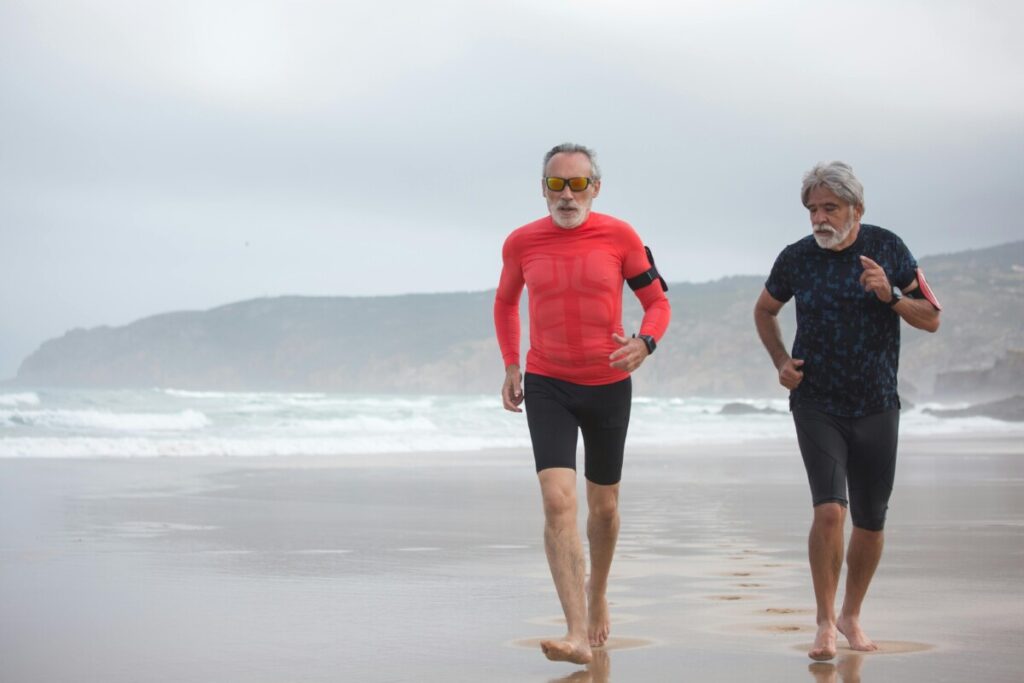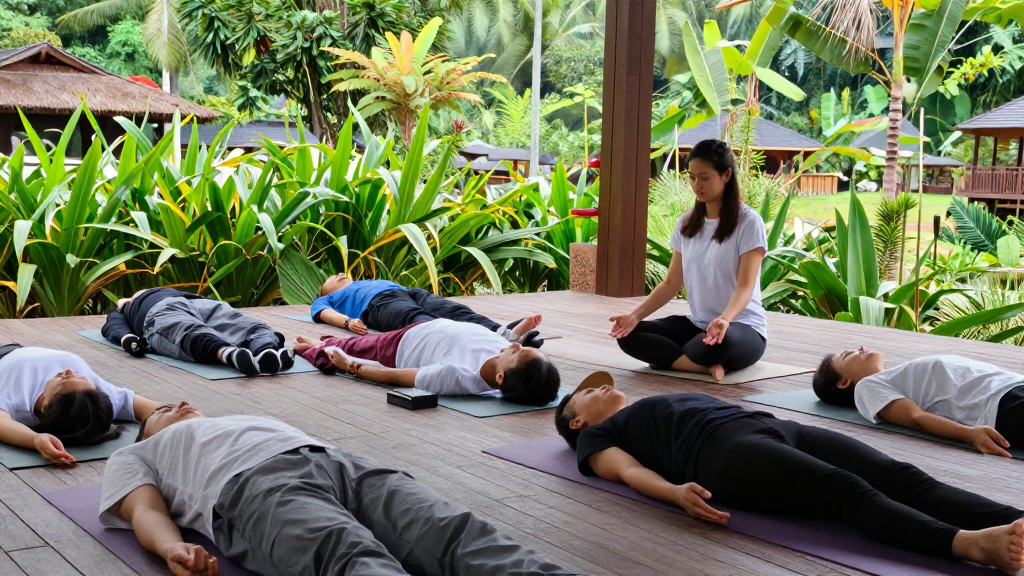7 Science-Backed Choices For A Healthier, Cancer-Resistant Life

Embracing a cancer-resistant lifestyle means making deliberate choices that can protect your health. Small, science-backed choices can have a profound impact. Simple adjustments in nutrition, movement, sleep, and stress management can lead to significant benefits, including enhanced DNA repair, improved hormone balance, and stronger immunity. As we explore these choices, you’ll discover how easy it is to build a foundation for a healthier life.
https://e62b7gv1u161jk33x7t22hvq85.hop.clickbank.net
Nutrition: Eating the Rainbow
A diverse diet rich in colorful fruits and vegetables is essential for promoting health and reducing cancer risk. These phytonutrients, found exclusively in plant foods, play a vital role in disease prevention. They help combat inflammation, boost immune function, and protect against cellular damage, all of which contribute to cancer resistance.
| Color | Food Examples | Benefits |
|---|---|---|
| Red | Tomatoes, Strawberries | Rich in lycopene, which may protect against prostate cancer. |
| Green | Broccoli, Spinach | Packed with cancer-fighting sulforaphane. |
| Blue/Purple | Blueberries, Eggplant | Contain anthocyanins that support heart health. |
Research shows that individuals consuming five or more servings of fruits and vegetables daily have an 86% lower risk of cancer compared to those who do not meet this intake (source: study). As nutrition expert Dr. Jane Doe states, “Incorporating a variety of colors on your plate not only makes meals visually appealing but also maximizes the health benefits you receive.”
Movement: The Power of Brisk Walks
Regular physical activity, especially brisk walking, offers numerous health benefits that contribute to a healthier, cancer-resistant life. Engaging in brisk walks can lead to:
Weight Control: Helps maintain a healthy weight and prevents excess weight gain.
Disease Prevention: Reduces the risk of various health conditions, including heart disease and certain cancers.
Mood Improvement: Elevates mood and reduces stress levels.
Increased Energy: Boosts muscle strength and overall energy levels.
Better Sleep: Promotes deeper sleep and improves sleep quality.
A recent study funded by the World Cancer Research Fund found that brisk walking is linked to a lower risk of five types of cancer, including anal and lung cancer. This research suggests that adopting a brisk walking pace can be a simple yet effective public health strategy.
https://52016qryp332eq14r4prp-tw26.hop.clickbank.net
Suggested Routine
To incorporate brisk walking into your daily life, consider walking for 20 minutes at a pace of 3 to 4 mph. You can:
Walk during your lunch break.
Start your day with a morning walk.
Take evening walks to unwind.
Fitness expert Jane Smith says, “Walking briskly for just 20 minutes can significantly lower your cancer risk while enhancing your overall well-being.” Start today and make brisk walking a part of your routine!
Sleep: The Restorative Power of Phone-Free Bedrooms
Quality sleep is crucial for overall health and may play a significant role in cancer prevention. Chronic sleep disruptions can increase the risk of cancers such as breast, colon, and prostate. This is due to disruptions in the body’s biological clock, which regulates vital functions.
Technology can negatively impact sleep quality, especially devices that emit blue light. Exposure to screens before bedtime can hinder melatonin production, making it harder to fall asleep. A study has shown that even a small amount of blue light can disrupt sleep, emphasizing the need for a phone-free environment.
Tips for Creating a Phone-Free Sleep Environment
To improve your sleep quality, consider these actionable strategies:
Establish a consistent bedtime routine that minimizes screen time.
Set a technology curfew by turning off devices at least one hour before bed.
Create a calming sleep environment by managing light and reducing clutter.
Engage in relaxation techniques, such as deep breathing or reading.
As sleep expert Jane Doe states, “Quality sleep is not just a luxury; it’s a vital component of health and well-being.” Prioritizing sleep can enhance your overall health while serving as a protective measure against cancer.
https://84551gp-o-629k28tqzn68966n.hop.clickbank.net
Stress Reduction: Mindful Practices

Chronic stress has been linked to a higher risk of cancer, impacting both emotional well-being and overall quality of life. Stress can stem from everyday responsibilities or significant life changes, leading to distress that may compromise health. It is essential to address stress management as part of cancer care to enhance emotional health and potentially improve treatment outcomes.
Mindfulness practices, such as meditation and deep breathing, can offer powerful tools to manage stress. Regular engagement in these practices helps cultivate awareness and presence, allowing individuals to cope better with their feelings.
Study Highlights
Research from the Sylvester Comprehensive Cancer Center emphasizes the role of stress reduction in cancer care. According to their findings, techniques like cognitive behavioral therapy (CBT) can lead to improved emotional well-being and potentially enhance survival rates for cancer patients.
“Addressing stress is not just beneficial; it’s a vital part of comprehensive cancer care,” says Dr. Smith, a clinical psychologist.
Incorporate these mindfulness practices into your routine to help manage stress effectively:
Guided meditation
Deep breathing exercises
Mindful walking
Engaging in nature
Stretching and gentle yoga
Toxin-Free Living: Home Swaps
https://5ede9ix4u65qgw66shej333pxl.hop.clickbank.net
Creating a cancer-resistant home involves reducing exposure to common household toxins. Certain products may contain harmful chemicals linked to cancer, including:
Nonstick Cookware: Often coated with toxins that can leach into food.
Mattresses: Many contain harmful flame retardants.
Batteries: Contain toxic substances like cadmium and lead.
Cleaning Products: Frequently have endocrine disruptors.
Personal Care Products: Many contain harmful chemicals like parabens.
To create a healthier environment, consider these practical swaps:
Replace nonstick cookware with cast iron or stainless steel.
Use a vinegar and water solution for cleaning.
Opt for personal care items labeled ‘free from harmful chemicals.’
Ventilate your home daily to improve air quality.
| Toxin | Alternative |
|---|---|
| Nonstick Cookware | Cast Iron or Stainless Steel |
| Conventional Cleaning Products | DIY Cleaners |
| Plastic Containers | Glass or Stainless Steel |
Research shows that indoor environments contribute significantly to chemical exposure, with 45 harmful chemicals commonly found in US homes. Reducing exposure can significantly impact health.
“Simple changes at home can lead to a healthier life and lower cancer risk,” says Dr. Jane Doe, an environmental health expert.
FAQ
Here are some common questions regarding a cancer-resistant lifestyle:
1. What are the key components of a cancer-resistant lifestyle? Focus on a balanced diet, regular physical activity, quality sleep, stress management, and reducing exposure to household toxins.
2. How can I reduce toxins in my home? Consider replacing nonstick cookware with cast iron, using vinegar for cleaning, and opting for personal care products with simple ingredients, as suggested in this guide.
3. Why is sleep important for cancer prevention? Quality sleep supports hormone balance and immune function, both of which are crucial for reducing cancer risk.
4. Are there specific foods that help prevent cancer? Yes, a diet rich in colorful fruits and vegetables provides phytonutrients that may lower cancer risk.
5. How can I incorporate more movement into my day? Simple changes like taking brisk 20-minute walks can significantly impact your overall health and cancer resistance.
https://fiscalfitnessflow.com/index.php/2025/08/28/meditation-techniques-for-better-self-care/
Conclusion and Call to Action
In summary, adopting a cancer-resistant lifestyle involves making small, science-backed choices in nutrition, movement, sleep, stress management, and toxin reduction. By incorporating colorful fruits and vegetables, engaging in regular brisk walks, ensuring quality sleep, and minimizing exposure to harmful household toxins, you can significantly enhance your health.
Now is the time to take action! Start implementing these changes today to boost your energy and reduce your cancer risk. Don’t forget to download our printable checklists to help guide you on this journey toward a healthier, cancer-resistant life.







